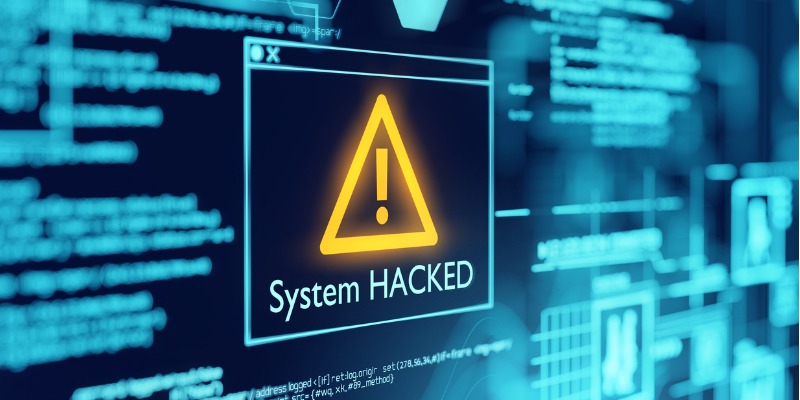Did you hear LastPass was hacked?
LastPass is a popular password manager that stores all your online passwords in one spot.
You likely have logins for dozens of websites. Your bank, your brokerage, Amazon, Gmail… the list goes on. The average internet user has between 70 and 80 passwords saved on their computer.
That’s too many logins to remember. I’m often clicking the “forgot your password” link.
LastPass solves this problem. It takes all your login details and locks them in an online vault you can only access by inputting your “master password.” Instead of having to remember 80 passwords, you only have to remember one.
LastPass “encrypts” your passwords to keep them safe. This is the same technique militaries and governments use for secret communications.
In other words, LastPass is no slouch. It has invested huge sums of money into state-of-the-art cybersecurity. It takes its #1 job seriously: Don’t get hacked.
One hack could ruin its business and expose over 25 million users’ passwords.
-
Yet, a hacker still managed to get through LastPass’s defenses.
In mid-August, LastPass suffered a major breach. It claims encryption protected users’ passwords. But the hacker stole a vital piece of code and could use it for future attacks.
Here’s the thing about cyberattacks: They are “sneaky.” Cyberattacks happen through a computer screen and seem “less real” than a burglar breaking into your home.
That’s a shame because the consequences of being hacked are very real. Hackers can steal your money, ruin your credit, access your secrets, and even commit online crime in your name.
-
If a sophisticated company whose #1 job is to not get hacked can get hacked… how safe are you?
These days, a few lines of malicious code can bring multibillion-dollar companies to their knees.
Earlier this year, hackers breached Nvidia, Samsung, and Microsoft.
These are big, important companies that spend tens of millions of dollars protecting their computer systems. And yet, hackers still managed to break in. They stole vital data and extorted these companies for millions of dollars.
Russian cybercriminals recently crippled an entire country—Costa Rica. The attack stopped all trade. It caused $125 million in damage in the first 48 hours. The hack is still costing Costa Rica $30 million per day!
Hackers even infiltrated social network LinkedIn. They stole data of 700 million people and sold it to other criminals.
In short, cyberattacks are rampant right now.
Top cybersecurity firm Check Point Software Technologies reported a record number of cyber-attacks in 2022. And there are still four months of the year to go…
Estimates show cyber-crimes will cost $10.5 trillion annually by 2025.
-
This is why money is pouring into cybersecurity…
Cybersecurity used to be a “nice to have.”
Now you can’t run a business without it. Every Fortune 500 company employs a chief security officer. No cost is too high when it comes to protecting your computer systems.
Bank of America spends over a billion dollars on cybersecurity annually. Microsoft will up its cybersecurity spending by 4X to $20 billion over the next five years. Google will invest $10+ billion to protect its networks.
Cybersecurity spending has shot up 86X since 2004. And it will only ramp up from here.
These days, a huge chunk of our lives is online. We shop on Amazon, talk with colleagues on Zoom, share pictures with friends on Facebook, and watch “TV” on YouTube. How many hours a day do you spend staring at a screen?
I work on the internet and spend at least 12 hours a day in “cyberspace.” You wouldn’t leave your office door unlocked, would you? It’s just as vital to protect your computer and online identity.
-
There’s an easy way to make money from all this chaos…
It’s clear cybersecurity spending is only going one way—up. That means cyber firms are set to rake in record amounts of money.
At the same time, cybersecurity stocks have taken a hit along with the broad markets this year.
Fortinet (FTNT) is down 24% year to date. Other cybersecurity stocks, SentinelOne (S) and Zscaler (ZS), have plummeted 46% and 51%, respectively.
That’s our opportunity.
An easy, one-click way is to invest in an ETF like the Nasdaq Cybersecurity ETF (CIBR). CIBR invests in a basket of the largest cybersecurity stocks.
An even better way to play it is to invest in one of my latest recommendations in my premium Disruption Investor advisory…
You see, a lot of cybersecurity is designed to stop specific viruses and cyberattacks. Hackers invent new ways to ambush you every day.
My recommendation has found a brilliant way around that—one that combs through six trillion potential hacks, bugs, and breaches every week in over 170 countries. Not only that, this disruptor is growing sales 6X faster than overall cyber spending.
I consider it a “megawinner,” and just last week, it reported record quarterly results.
Investing in megawinners like my recent pick is one of the surest ways to make money in the markets, no matter what’s happening in the economy. Discover more here.
At that link, you’ll also see how you can take a risk-free trial to Disruption Investor and access all my latest research—including my top cyber pick.
Stephen McBride
Editor — Disruption Investor



